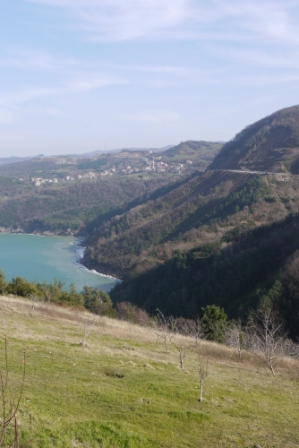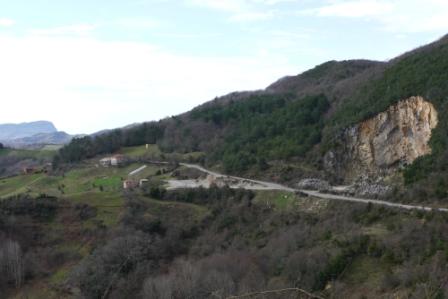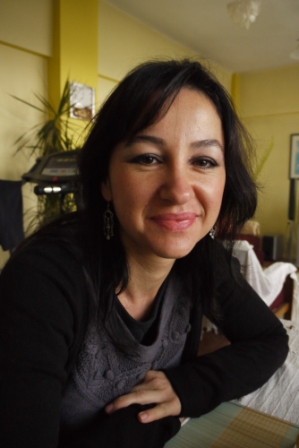
Beyond Amasra the road changes. Winding steep descents, only to slowly, painfully, regain the height, traversing around the next headland. Then downhill once more, perhaps eight hundred feet. Tough coastal riding. A struggle to average little more than twice a good walking pace. I was reckoning on about six thousand feet of climb each day, hauling Emma and sixty pounds of kit.

Barely any respite, perhaps a few kilometres of relatively flat road each day, no more. Little traffic and few settlements. A first beautiful, unspoiled, before the repetitive tedium, the slow, grinding progress, takes hold. The odd gem to lift faltering spirits, a natural harbour reminiscent of Lulworth Cove in Dorset.
Few people seemed to visit this section of the Black Sea coast, even in summer. Just the odd place to stop, mostly workers hotels, cheap and functional. The houses, with their distinctive concrete frames and red brickwork, reminded me of rural Bulgaria.
I was finding progress frustratingly slow. I’d a plan to reach the port of Sinop, some four hundred kilometres east of Amasra. From there I planned to leap ahead by coach to meet up with my father, before returning to continue east once more on the bike. But I needed to get to Sinop first, and endless poring over my doubtful map wasn’t bringing it any closer. Nothing for it but to pedal harder. At least the weather was holding, and frequently I’d be invited off the road for warm, sweet tea by curious locals.


